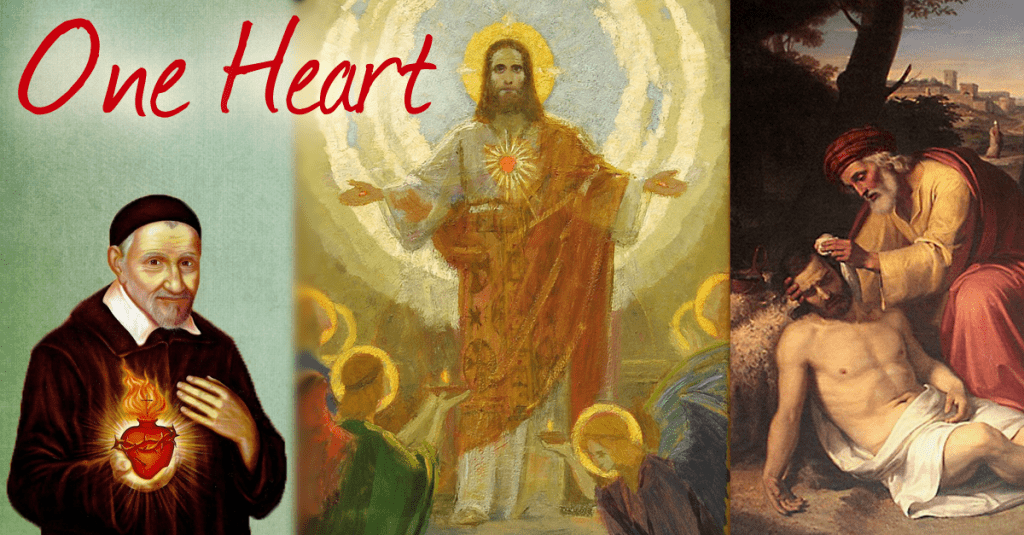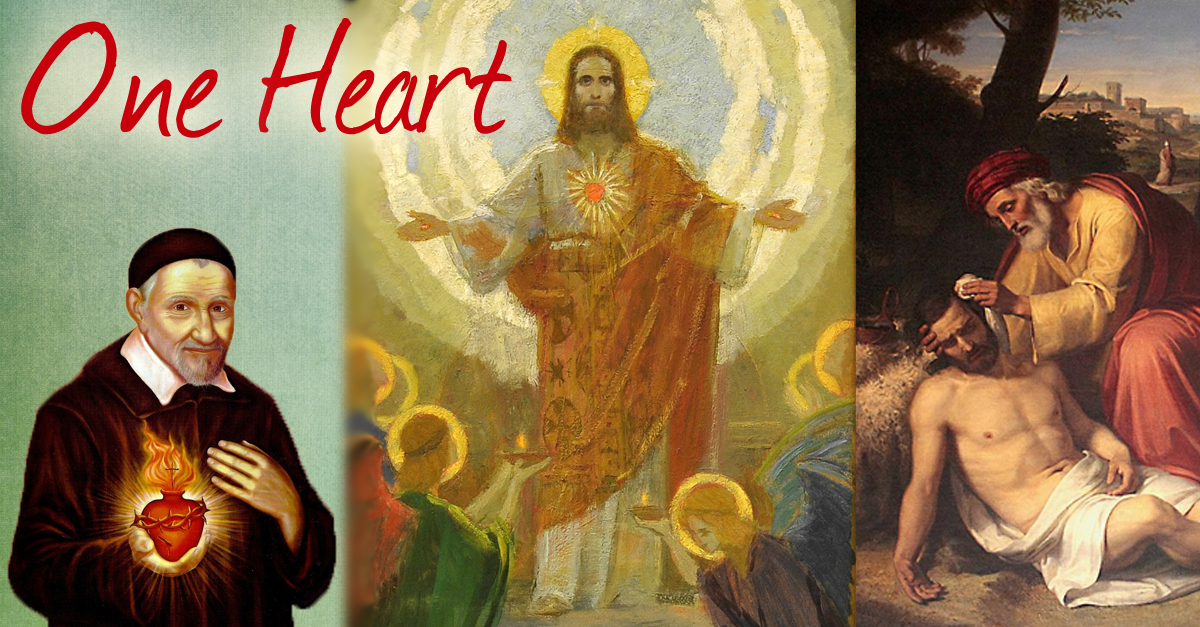“One Heart” – Patrick Griffin CM
 Patrick Griffin CM continues his series on Considering Consecrated Life with this reflection on “One Heart”
Patrick Griffin CM continues his series on Considering Consecrated Life with this reflection on “One Heart”
“We have only one heart. . .”
(Laudato Si’, Pope Francis, 24 May 2015, 92)
Laudato Si’ has challenged me both to meditate and to learn. I find myself constantly invited to think about things in a new way and to recognize connections. In fact, if I were to select one word which describes the teaching of this Encyclical, it would be that: connections. Over and over, the letter draws out the lines which bind all things living and nonliving together—all creation. One walks away with a sense of a web which embraces not only the physical but also the intellectual and spiritual world. Everything relates in one way or another. Too often, I am not sensitive to that truth although the story of creation, the theology of the sacraments (notably the Eucharist), and the image of the mystical body all forcefully point to those connections.
One striking element in this regard relates to our own person. Francis says: “We have only one heart” (92). One would think that it does not require a genius to acknowledge that truth, but, of course, he does not speak solely of the physical heart keeping us alive. He refers to our sensitive and sensible way of interacting with our world. When I was a child, sometimes I might say something inappropriate. On occasion someone older would stop me and ask “Do you kiss your mother with that mouth?” I did not need any further explanation; I knew the connection. The same is true of our hearts.
The one heart which is tender and caring with those whom we love can become hardened or, at least, unconcerned when we consider the needs of another to whom we have less relation. The heart which can soar with the colors and music of a particular culture can become deaf to the cries of these others as they become refugees due to damage in their home environment. It is the same heart. We are not good people one moment and bad people the next. The problem, which the Holy Father repeats regularly, is indifference, a desire not to know, a confidence that government or technology will resolve the problem. All pass through the same heart.
Look at the story of the Good Samaritan. The priest and Levite should draw our attention. They represent us. These are not bad people. They probably just left the families whom they love and were on their way to Jerusalem to offer devout worship to their God. But, that same heart, which defines the beginning and end of their day’s journey, enables them to ignore the plight of the victim along the side of the road. On the other hand, think of the ministry of Vincent and Louise. They summon their followers to treat the suffering among us as our “lords and masters.” The privileged and influential do not uniquely summon respect and devoted care. The same heart must extend toward both great and small, with the marginalized becoming our special portion.
One heart. We have only one heart, and it cannot be compartmentalized. We cannot open and close it depending upon circumstances and whim. And this heart embraces our world widely—not just other human beings but all creatures:
“When our hearts are authentically open to universal communion, this sense of fraternity excludes nothing and no one. It follows that our indifference or cruelty towards fellow creatures of this world sooner or later affects the treatment we mete out to other human beings.” (92)
That which motivates us in one circumstance is not alien to what may be called forth in another. The connections all flow through the one heart.
Paul famously calls the church at Philippi to be of one heart as a community. He writes:
If there is any encouragement in Christ, any solace in love, any participation in the Spirit, any compassion and mercy, complete my joy by being of the same mind, with the same love, united in heart, thinking one thing. Do nothing out of selfishness or out of vainglory; rather, humbly regard others as more important than yourselves, each looking out not for his own interests, but [also] everyone for those of others. (Phil 2:1-4)
Then he poses the example of Jesus with his singleness of purpose and devotion.
The sacred heart of Jesus provides the best example of one connected to all persons. We acknowledge readily his willingness to deal with sinners as well as saints with unvarying attention and concern. Poor and rich held equal rank in his vision. Remember how, in the one passage, he heals the poor woman with the flow of blood and the privileged daughter of the synagogue official (Lk 8:41-56)? We pray that our hearts can be like the one which is “meek and humble” (Matt 11:29). And we seek to make our consecrated and Vincentian hearts connect to the world in which we live—with all its inhabitants and creatures. The lives of our beloved poor depend upon it.







0 Comments